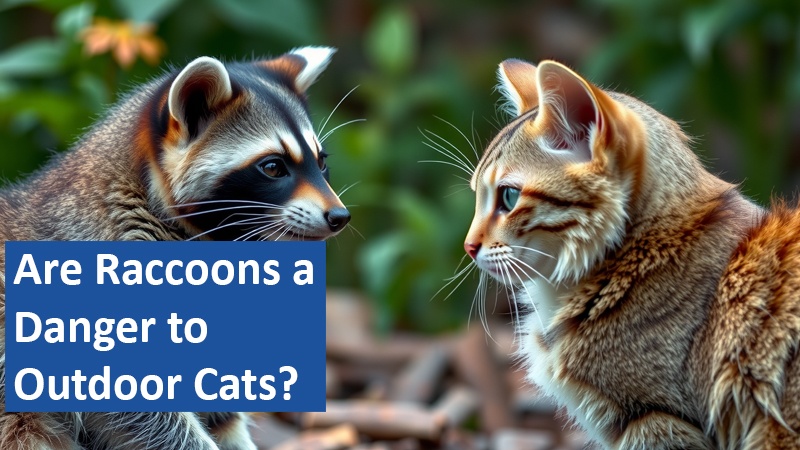Raccoons are increasingly making their way into urban areas, leading to more frequent encounters with outdoor cats. While these animals may seem harmless or even cute, their presence raises concerns about potential risks to pets. This growing interaction between raccoons and cats prompts important questions about safety and prevention.
By Sadie Watkins
Understanding Raccoons in Urban Environments

Native to North America, raccoons have long been a common sight in both rural and urban areas across the United States. These adaptable animals thrive in forests but have increasingly found opportunities in cities where food is abundant. In urban settings, raccoons often forage for garbage, pet food, and other scraps, which has led to more frequent interactions with household pets like cats. Their resourcefulness and growing numbers make them a regular part of suburban and even metropolitan life, where they continue to adapt and survive.
Are Cats at Risk in Raccoon Encounters?
Outdoor cats are territorial and may view raccoons as intruders when they encounter them. While raccoons are not active predators of cats, conflicts can arise if a raccoon feels threatened or cornered. Due to their larger size and strength, raccoons can seriously injure a cat in a fight, potentially resulting in fatal injuries. Although rare, raccoons might also scavenge deceased animals, including cats, especially when food is scarce.
Health Hazards Posed by Raccoons
Beyond physical confrontations, raccoons pose a significant health risk to outdoor cats. They can carry diseases, parasites, and worms that may infect pets through contact with raccoon droppings or saliva. Raccoon roundworm, for example, is a serious parasite that can affect both animals and humans. Ensuring cats are vaccinated and maintaining a clean outdoor environment can help mitigate these risks.
Tips to Protect Cats from Raccoons
Preventing raccoon encounters starts with reducing attractants. Avoid feeding cats outdoors, as leftover food can draw raccoons to your yard. Secure garbage bins tightly to keep raccoons from scavenging, and consider using raccoon-proof cat doors for added security. Simple measures like these not only protect pets but also prevent raccoons from becoming a persistent problem.
Raccoons are adaptable and intelligent animals that can occasionally pose risks to outdoor cats through direct encounters or disease transmission. With proper precautions, such risks can be minimized, ensuring the safety of pets.
Based on information from www.petbook.de and own research.